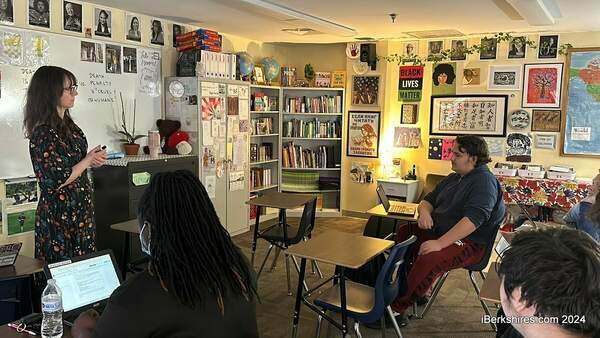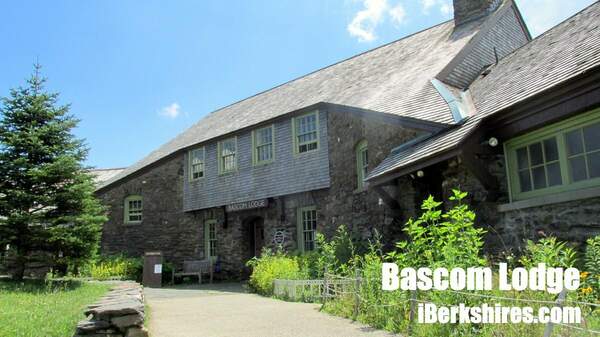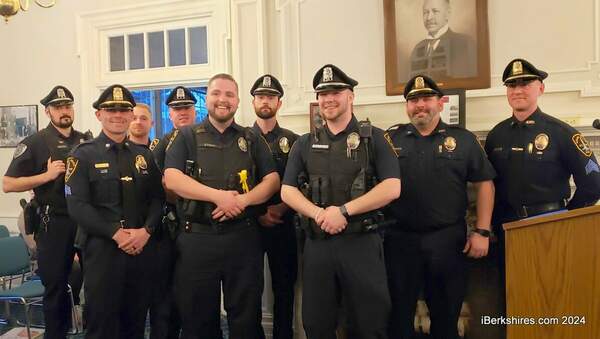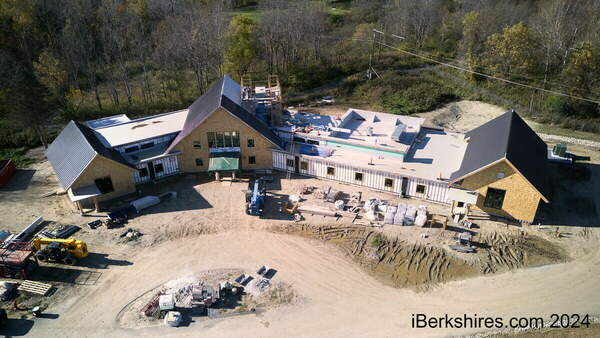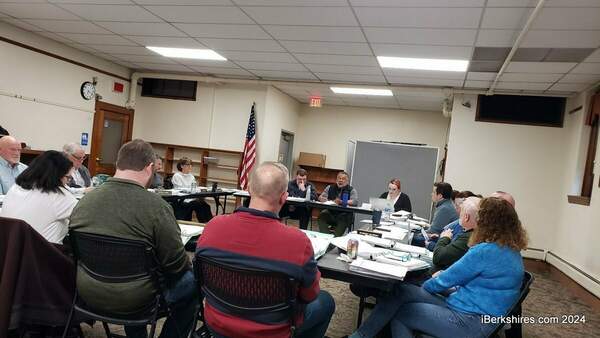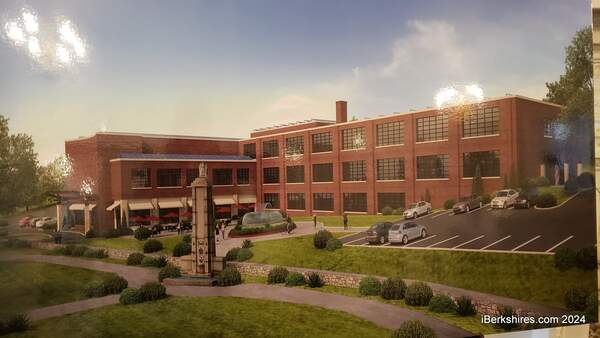Letters: Solar Development Law Needs Clarification
 |
To the Editor:
Last evening [Nov. 12], I attended a Zoning Board of Appeals meeting at the Adams Town Hall regarding a large solar project proposed for 217 East Road in Adams. My husband, Michael, and I have a vested interest in this situation as property owners at 17 Spring Road. We're very close in proximity to the property on which the project has been proposed, though many of our neighbors are closer, even directly abutting the property itself. Earlier discussions were held with the Planning Board, which ultimately turned down the project back in September after much spirited discussion and debate. I also attended the last two of those meetings.
When I first heard of the project earlier this year, I admit I was kind of excited about it. I'm a big believer in sustainable and renewable energy sources and thus a pretty big supporter of wind and solar – they just make sense. When I learned more about this particular project, though, I became disappointed about the project and its process thus far for a number of reasons.
• Constructing and operating a large solar project like this in a zoned residential area raises significant concerns about property values. No one seems to have a good answer to this on either end – admittedly because it's rare to see a solar project of this magnitude constructed in a residential area.
• It raises concerns about precedent for other similar potential industrial or commercial projects in residential areas.
• The Planning Board and Zoning Board of Appeals meetings have been, well, interesting to say the least, especially procedurally. I believe most of the members of the Planning Board and the Zoning Board of Appeals have, for the most part, tried to do the right thing by the people of Adams whom they serve in their roles. However, there seems to be a lack of coordination between some town employees and the boards when it comes to information sharing as well as meeting procedure. For example, in tonight's [Nov. 12] meeting, it was noted that town employees had delivered a large amount of important, relevant documentation/information to the board only four days prior to the meeting, and failed to include information they had received from town residents. Another example is that the town's attorney didn't know whether the Zoning Board of Appeals needed a majority vote to pass a motion, or a 4-1 vote, which resulted in a continuance of the meeting to Nov. 19. This seems like an answer that either should have been readily known by the town's attorney, or should have been readily found during the meeting. Unfortunately, the town officials and attorney's failures of knowledge and leadership on this proposal are instilling a growing distrust by their constituents/employers.
Beyond these concerns, I'm disappointed as a community member with the property owner's approach thus far to this proposal. Neither he nor his business partners appear to have either a true understanding of, or concern for, the plight of the neighbors should this project go through.
At the last Planning Board meeting, the property owner spoke briefly, telling those in attendance two things that stood out to me:
1. By restricting his perceived right to do whatever he wants on his property through denying he/his business partners' request for this large-scale solar project, he warned that the town could then tell any property owner that we can't build a shed or a garage or a fence if we want to.
2. He also said something close to "Fine, you don't want this project, then you pay my property taxes."
In response to the first note above, no property owner can do whatever s/he wants to do on his/her property, and with property in a zoned area, there are always restrictions. We all are expected to be aware of and understand those particulars when we choose to purchase property, and we agree to abide by them. Most of those policies are there for good reasons, and, in fact, make our residential-zoned areas that much more appealing, both to call "home," and also for property investment in the long-term.
In response to the second note above, it's just not appropriate to place the onus on one's neighbors for one's own choices about purchasing and building on one's property (and the resulting responsibilities such as property taxes, etc.). The neighbors didn't force this property owner to buy the land, nor to build on it. Any person purchasing property accepts full responsibility for that property, and must manage it within their own resources and capacities.
As a big believer in sustainable and renewable energy sources, I wonder what might have happened if the property owner, along with his business partners, had first approached the abutters and neighbors in close proximity, to talk with us about it, get our feedback, address our concerns, answer our questions – perhaps even offer us an opportunity to experience some direct benefits from the project (for example, reduced-rate or free electricity and/or a royalty) and/or assurances about potential neighborhood concerns (for example, ensuring that any residential property values that diminish due to the project would be compensated to abuttors/neighbors by the company; that the town would provide property tax relief to the property owners if values diminish). There may have been an opportunity for Adams to be a pioneer in the state (and perhaps even the nation) for a large-scale residential solar project that would have directly benefitted not just the property owner, but also the abuttors and neighbors who also have a significant vested interest in the ultimate success or failure of a project like this if it ends up being approved.
Instead, what I've observed thus far is a property owner who appears to have a chip on his shoulder, and his business partners attempting to tough-arm their project through, ram-rodding it down the throats of the neighbors and the town through subjective interpretation of a state law that, for all intents and purposes, likely does not apply to a large-scale solar project in a residential-zoned area. The impression I have is that the property owner and his business partners feel that his neighbors shouldn't oppose this project nor even have a say in it, even though we have the most to lose and he and his business partners have everything to gain. The abutters and neighbors are doing what we have to, to protect our own rights as property owners.
Bad blood has been created between neighbors, and it's going to be pretty difficult, perhaps impossible, to overcome. It would take a drastic shift in approach, attitude, and assurances from the property owner and his business partners through positive and genuine outreach, compromise, and partnership. If their intents are good and true, they'd take the time, make that effort and accept however things turn out. As a good neighbor, I'd like to give them the benefit of the doubt; but from what I've seen so far of their actions and words, I'm not optimistic. And given the bad blood, it may be impossible for many abuttors and neighbors to even consider talking with or listening to them – and I wouldn't blame my neighbors for that at all.
At this point, I believe that the state needs to review the antiquated law cited often by both sides of this argument and clarify how (and if) it applies to a proposed project of this magnitude in a residential-zoned area; and in preparation I urge our lawmakers to visit this neighborhood and perhaps even offer a town hall meeting about it to hear their constituents' concerns, questions, ideas, and issues. In the meantime, I urge the Town of Adams to enstate a moratorium on proposals and projects of this nature in residential-zoned areas until such clarification is completed by the state.
Respectfully submitted,
Douglas Schiazza
17 Spring Road, Adams
Nov. 13, 2013
This letter was also addressed to Selectmen Chairman John Duval, Town Administrator Jonathan Butler, Town Assessor Donna Aitken MacDonald, Finance Committee Chairman Timothy Burdick, Community Development Director Donna Cesan, Treasurer/Tax Collector Holly Denault; Schiazza said copies were also sent to Rep. Gailanne Cariddi, the governor, speaker of the House, president of the Senate, local media, abuttors, Jeffrey and Carrie Loholdt, Apis Energy Group, the Planning Board and the Zoning Board of Appeals.
Tags: Planning Board, solar array, ZBA, zoning,

